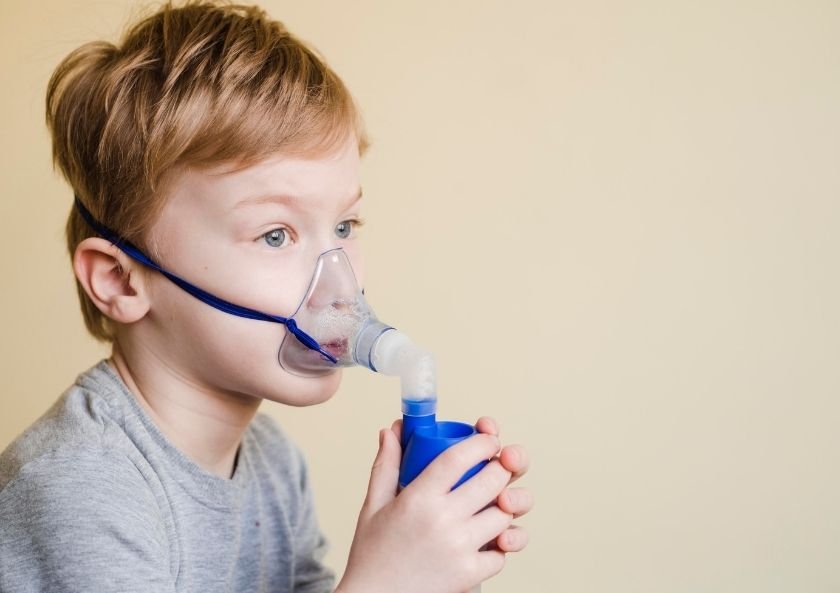Allergic asthma is a common disease in children. Asthma symptoms, families, especially those who cough the child frequently during the winter months, wonder about the asthma symptoms. Asthma symptoms in children; frequent cough and shortness of breath. Apart from this, many symptoms can also be asthma symptoms. We will try to answer the question of what are the symptoms of asthma in children.
The most common symptoms of allergic asthma; frequent cough, shortness of breath and chest pain.
What could be the symptoms?
- Frequent coughing
- Shortness of breath
- Chest pain
- Hearing a wheezing sound in the lungs
- Any flu landing in the lungs and having symptoms of wheezing and coughing after the flu
- Coughing after playing games, wheezing in the lungs
- Exercise, shortness of breath after exercise, wheezing in the lungs, cough
- Flu cough lasting longer than 2 weeks
- Signs of getting pneumonia twice or more can be signs of allergic asthma.
Asthma symptom can only be cough
Families generally do not accept allergic asthma in their children. My child’s breath is not tight, he/she just coughs, so they say it’s not asthma. But it should be known that only a child with frequent coughing can have allergic asthma.
Allergic asthma cough has characteristic features
Cough due to allergic asthma has some characteristics. It usually starts 1-2 hours after going to sleep, or coughing towards the morning or may be in the form of cough that removes sleep at night. Therefore, cough in your child;
- If it wakes you up at night,
- If it happens 1-2 hours after going to sleep, not just after going to sleep,
- If you have a cough in the morning or when you wake up in the morning,
- If you have a cough after playing games or doing sports, or after climbing up the stairs, this cough may be due to allergic asthma.
Asthma symptoms are repetitive
Allergic asthma symptoms usually recur. In a child who only coughs for 1-2 weeks, allergic asthma is not considered. However, if coughing occurs frequently and recurs, it should be thought that it may be due to allergic asthma.
Asthma can be seasonal
If allergic asthma symptoms occur in the spring months or after cleaning at home, allergic asthma should be suspected. Because the most important causes of allergic asthma are due to mites or pollens in house dust. Therefore, allergic asthma due to pollen manifests itself in the spring months.
Symptoms of children with allergic asthma start with the opening of schools and the arrival of winter.
With the opening of schools, flu infections are common. Flu infections are the most common cause of allergic asthma symptoms. In particular, flu infections are very common in kindergartens, and symptoms of cough occur frequently after flu.
Children with allergic asthma are very affected by odors
The lungs of children with allergic asthma have become sensitive to odors, with damage to their bronchi caused by inflammation and subsequent bronchial hyper-sensitization. After this sensitization, they become very sensitive to smells and are sensitive to smokes of cigarette smoke, perfume scents, cleaning materials and detergents.
It can also be seen with eczema and allergic rhinitis in children with allergic asthma.
Children with allergic asthma tend to coexist with other allergic diseases. Especially allergic rhinitis and eczema are seen with frequency in children with allergic asthma.
Children with allergic asthma are more likely to have allergies in their parents or relatives.
Allergic asthma is a genetic disease. Especially if their mother, father, sibling or close relatives have an allergic disease such as allergic asthma, allergic rhinitis, eczema and allergic asthma symptoms are seen, these children should be examined especially in terms of allergic asthma.
As a result;
- The main symptoms of allergic asthma are; frequent cough, shortness of breath and chest pain.
- Frequent coughing may be the only sign of allergic asthma.
- The cough of allergic asthma usually wakes you up at night, occurs 1-2 hours after sleeping at night or towards the morning.
- Allergic asthma symptoms are recurrent.
- Allergic asthma symptoms may show seasonal characteristics.
- Children with allergic asthma are easily affected by odors.
- It can also be seen in children with allergic asthma, eczema and allergic rhinitis.
- Children with allergic asthma are likely to have allergies in their parents or relatives.



